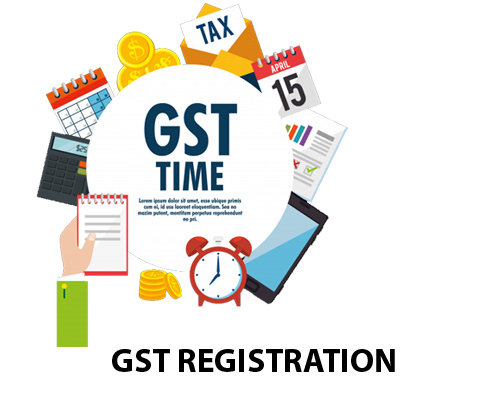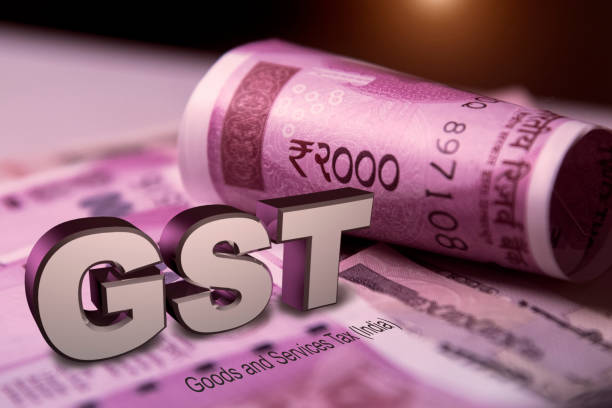What are the various types of GST registration in India?
The Goods and Services Tax GST registration regime has successfully changed and simplified the system of indirect taxation on the supply of goods and services across the country. GST registration is mandatory for all dealers or units having turnover above the specified threshold limit. With two decades of industry experience and presence in India and abroad, registration for GST registration in Chennai is now possible through a simple process online process through the cost-effective and high-quality services offered by An Linked GST Facility Provider (GSP) Alankit Limited. Registration mode in GST The online mode allows individuals and companies to focus on their core business without having to worry about any delays or difficulties in visiting government offices.

Types of GST registration
Mandatory registration
In certain situations the trader must take compulsory registration under GST regardless of turnover. For example: interstate sale of taxable goods, e-commerce merchant operator, e-commerce merchant seller, etc.
Voluntary registration
Businesses that do not need to apply for compulsory registration can apply for registration on a voluntary basis. This is call as voluntary registration under GST.
Registration under Composition Scheme
If the total turnover for goods is Rs. 40 lakhs (Rs. 20 lakhs for special category states) or Rs. 20 lakhs (Rs. 10 lakhs for special category states) is above the prescribed threshold limit but less than Rs. 1.5 crore (Rs. 75 for special category states) la lakh), can be register under merchant formation scheme. In case of services, if the overall turnover is more than Rs. 20 lakhs (Rs. 10 lakhs for special class states) but it is less than Rs. 50 lakhs, the trader can register under the composition scheme. Under this scheme the taxpayer should pay GST at a fixed rate on turnover and in case of general registration it is less compliant.
No registration
GST registration in Bangalore is not require for the following persons:
The business for which the overall turnover during the financial year is Rs. 0 lakhs (Rs. 50 lakhs for special category states) or Rs Not more than 50 lakhs (Rs. 10 lakhs for special category states)
Businesses that do not fall under the provisions of compulsory registration
Individuals selling goods or services that are exempt under GST or not covered under GST
Agronomists for the supply of crops produced from land cultivation

Documents requirement:
- Documents and information are require in case of personal / proprietary registration
- Business Admin’s PAN Card (including directors and partners)
- Proof of address
- Evidence at the place of business
- Bank account number
- Partnership deed
- Certificate of insertion
- Trust deed and certificate of registration
- Foreign companies and LLPs need a certificate of business establishment
- Bank pass book
- Bank statement and cancelled check
- Photo copy
Procedure for registration:
Individuals must follow a step-by-step process to complete GST registration in Coimbatore:
Step – 1: Visit GST Portal – https://www.gst.gov.in
Step-2: Click on the ‘Register Now’ link which can be found under ‘Taxpayers’ tab
Step – 3: Select ‘New Registration’.
Step – 4: Fill in the following details:
Under the ‘I am one’ drop-down menu, select ‘Taxpayer’.
Select the relevant state and district.
Give the business name.
the business page.
Additional steps
Enter the email ID and mobile number in the relevant boxes. The enter email ID and mobile number must be active as OTP will be sent to them.
Then Enter the image shown on the screen and click ‘Proceed’.
Step – 5: Also, On the next page, enter the email ID and OTP that was sent to the mobile number in the relevant boxes.
Step-6: Once the details are enter, click on ‘Proceed’.
Step – 7: You will be show Temporary Reference Number (TRN) on the screen. Make a note of the TRN.
Step-8: Visit the GST registration in Chennai portal again and click on ‘Register’ under the ‘Taxpayers’ menu.
Then Temporary Reference Number (TRN)’.Enter the details of TRN and CAPTCHA.
Click on ‘Proceed’.
Step – 12: You will get OTP on your email ID and register mobile number. Enter the OTP on the next page and click ‘Proceed’.
Step – 13: The status of your application will be available on the next page. On the right, there will be an edit icon, click on it.
Step – 14: There will be 10 sections on the next page. All relevant details must be filled in, and require documents must be submit. The following is a list of documents that must be uploaded:
Photographs
Proof of business address
Bank details like account details, bank name, bank branch and IFSC code.
Authorization form
Taxpayer constitution

Step 15: Visit the ‘Verification’ page and check the announcement, then submit the application using one of the following methods:
Electronic Verification Code (EVC), The code will be sent to the register mobile number. By DSC method The OTP will be sent to the mobile number attached to the Aadhar card.
If companies are registering, the application must be submitted using a Digital Signature Certificate (DSC).
Step – 16: Once completed, a success message will be displayed on the screen. The application reference number (ARN) will be sent to the registered mobile number and email id.
Step – 17: You can check the status of ARN on GST portal.
Benefits:
Elimination of Cascading Effect –
The introduction of GST has eliminated the previously noted cascading effect in indirect taxation, making double taxation at every step. The move has reduced the tax liability of commercial companies.
Convenient Application Process
Procedure for GST Registration in Bangalore. The online application as well as the application process for filing GST can be done easily through the GSTN portal, making it time efficient and easy.

Low compliance
Under the previous tax regime, businesses had to file various returns, such as various indirect taxes – VAT, excise and service tax. Since GST is a unified and single tax regime, the number of filings has come down, making it less difficult for companies to file returns.
Advantage of Composition Scheme –
With annual turnover of Rs. 1 crore can enjoy lower tax rates and less stringent compliance if registered under the GST Composition Scheme.
Less stringent conditions on logistics –
Under GST, the conditions for logistics are less stringent compare to the previous tax regime.
Regulation of the Unorganized Sector –
Registration under GST registration in Bangalore includes a number of provisions to ensure transparency in the tax payment system, tax payments and the benefit of input credit.



